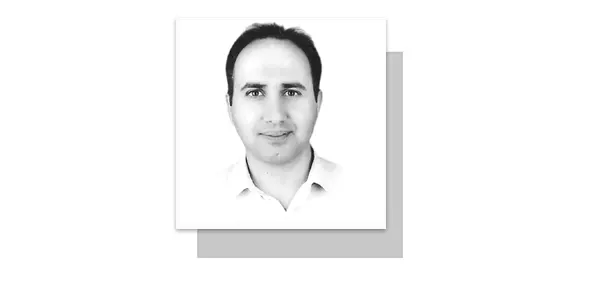PAKISTAN is witnessing its 14th general election tomorrow (8 February 2024) in which more than 128 million registered Pakistani voters will have the chance to cast their vote for candidates to Provincial and National Assemblies. There are a total of 336 seats in the National Assembly, out of which 266 are general seats while the remaining 70 are special seats reserved for women and ethnic minority candidates. Provincial Assemblies of Punjab (371), Sindh (168), Balochistan (65) and Khyber Pakhtunkhwa (145) have a total number of 751 seats, out of which 593 are general seats and 156 are reserved for minorities and women. According to statistics available with Election Commission of Pakistan, 22711 candidates belonging to more than 150 political parties or no political party are contesting these elections on general seats. The data shows that 23 million registered voters are aged between 18-25, 33 million aged 26-35, 28 million aged between 36-45, 18 million 46-55, 12 million 56-65, and 12 million voters are above 65.
In the midst of a galore of electronic media, the general public has acquired a certain level of independence of thought and is no longer buying official narratives. Most of the people in the country are certain that the army has changed its direct intervention and now playing its political role indirectly so as to enjoy power but no responsibility. For nearly 70 years, the military has defined Pakistan’s national security priorities, be it foreign policy or defence, sometimes from the seat of government itself, with many commanders placed on prominent economic and political positions. In the nation’s 76-year history, not one prime minister has served out a full five-year term. They have been thrown out by military or judicial coups.
Pakistan was established as a Nation-State to ensure the supremacy of the people, rule of law, active citizen participation in politics and protection of human rights. The first Constituent Assembly passed an Objective Resolution, which remains a preamble of the 1973 constitution. It emphasized the principles of democracy, freedom, equality, tolerance and social justice enunciated by Islam. Quaid-i-Azam supported active citizen participation in electing representatives. He felt that Muslims, who value liberty, equality, and brotherhood, are inherently democratic. Throughout his career, Quaid’s dedication to rule of law and constitutionalism was unwavering. However, military interventions have made these values mocked in the past seven decades.
Many, including those from abroad, who back democracy and applaud democratic governance, believe that representative governments are unavoidable options to put the country on track. The struggle between democracy and the military has led to a loss of popular trust, resulting in economic and social issues. Pakistan needs a future beyond past and present conflicts to ensure its well-being. Democracy requires unreserved recognition of the people’s right to govern themselves. However, democracy is complicated due to weakened structures like the Constitution, Parliament and Judiciary. The Quaid’s ideals have been so weakened that some question their relevance as a reference frame, making the democracy more confusing. But it would be a grievous mistake if we fell into the error of seeking to compromise further on his faith in democracy as the only course for Pakistan to follow. With our repeated deviations from universally accepted principles, we are often spoken of as an anachronism in today’s world moving towards political and social emancipation.
It is no pleasure, year after year, to repeat a litany of failure. We must squarely confront the challenge of discovering our direction and identity if we want the times to come to be more purposeful and productive. Pakistan can move towards stability and consolidation if the constituent units are given a strong stake in its strength and vitality. This means not only economic development in backward provinces and regions but also a proper devolution of powers from the centre downwards. For the people at large, democracy essentially means a proper sense of participation at all levels of government, federal, provincial and local. There is neither freedom from want for millions living in urban slums and the less developed regions nor would freedom for the creative urges of the people to find expression that lend dynamism to the country. The general election on February 8 will significantly impact Pakistani politics. It is crucial to let the people decide their destiny, as political engagement fosters political consciousness and builds effective democracies. Let the people cast their vote to win a democracy for the future of Pakistan.
—The writer is PhD in Political Science and visiting faculty member at QAU Islamabad.
Email: [email protected]
views expressed are writer’s own.










